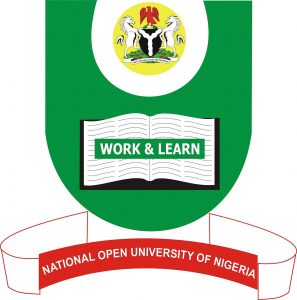Help us protect the commons. Make a tax deductible gift to fund our work. Donate today!
Open educator and Institute for Open Leadership Fellow Jane-Frances Agbu works as a senior lecturer in health science and coordinates the award-winning Open Educational Resources program at NOUN, the National Open University of Nigeria. NOUN provides open and distance education to over 180,000 students in the region.
Agbu has seen the benefits of open education firsthand as a teacher, an administrator, and an advocate for free education for all students.
What does open education mean to you as an educator? How do OER increase access and equity in your institution? What has OER changed at your institution, if anything?
Open education means access, equity in education. It helps to reach the unreached and the marginalized (for example, those in conflict area, women in difficult situations, youth that must work but need to study at the same time). It is flexible and accommodating. It is the right education mode for the information and technology age. OER awareness is just two years in at my institution and we have been able to understand the creation and use of OER through collaborations and sensitization in this area. With OER, educational resources are shared, used, adopted, adapted free of cost. Lecturers now use OER to improve on teaching materials and personal research, students use OERs as additional knowledge for deeper insight in their courses. Institutionally, NOUN seeks to gradually share its body of courseware as OERs to further contribute to this noble ideal.
How do you support OER at NOUN? How have you used your time at the Institute for Open Leadership to encourage better access to educational resources in your region and beyond?
I was the coordinator of NOUN-OER projects until July 2016, and I raised awareness in this area. This culminated in an award for my institution in March 2016.
My contact and time with IOL has broadened my insight on open policy and I have used the knowledge gained to help draft an OER policy for my institution that was recently approved by the University Senate. This policy will help encourage better access to educational resources in my institution and beyond.
How do you promote advocacy of open licensing in Nigeria and West Africa in general? What is your motivation for promoting open education in these regions? Why does OER matter to your region?
This is achieved through sensitization in this area and collaboration with other institutions. In December 2015, NOUN presented its OER initiative to the Federal government of Nigeria, a way of advocating for others to come on board.
Advocacy around open licenses is geared towards opening-up knowledge for common good and this is needed in my region, the West African region, where most are in dire need of better quality of life.
Have you worked directly with any students in Nigeria who have inspired your work? Are there any particularly exciting stories or data points that you’d like to share?
We are gradually understanding the beauty of open education, OERs and open license framework and our advocacy in this area has inspired many institutions and individuals around us. Perhaps my exciting story, aside from the award we got in this area, is a recent publication that further sharpened my understanding of the benefits of open education: The Best of Two Open Worlds at NOUN.
Open education is more than licensing. How do you inspire working open in your work and teaching?
Yes, it is more than licensing.
It upholds the dignity of mankind. We need to be open-minded to understand and tap into the beauty of open education.
For me, though trained in a conventional university system, I am glad that I can reach (and provide education) to more students by working in an open education system. I now publish in open access journals because that is how it should be in the first place. Research findings should be seen and utilized immediately and not shelved away in a concrete library. I also try to use open license in some of my personal materials so that students to easily adapt them without seeking permission. I also use open-licensed audio and videos to improve my teaching.
With many students going back to school this week, what kind of advice do you have for students who want to inspire their institution to embrace OER? How can we spark a movement as open educators and students?
For my part of the world, OER is still in its infancy. OER, just like everything tagged “open” is sometimes misunderstood. For example, when NOUN started in 2003 as an open university, it met a lot of resistance, but learners are gradually embracing its unique opportunity that provided flexibility and access in education. So OER may have its initial resistance but once the beauty is understood through continued advocacy, champions will rise.
Posted 14 September 2016
